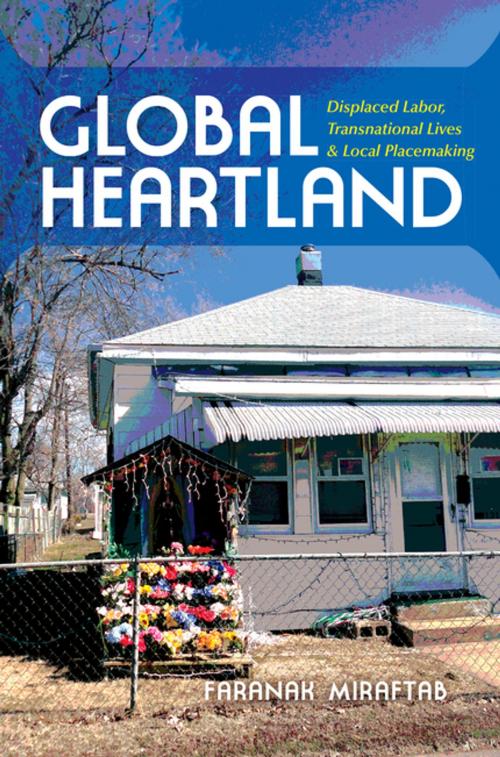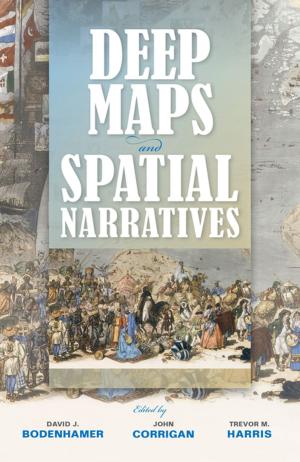Global Heartland
Displaced Labor, Transnational Lives, and Local Placemaking
Nonfiction, Social & Cultural Studies, Social Science, Sociology, Rural, Cultural Studies, Emigration & Immigration, Political Science| Author: | Faranak Miraftab | ISBN: | 9780253019424 |
| Publisher: | Indiana University Press | Publication: | January 7, 2016 |
| Imprint: | Indiana University Press | Language: | English |
| Author: | Faranak Miraftab |
| ISBN: | 9780253019424 |
| Publisher: | Indiana University Press |
| Publication: | January 7, 2016 |
| Imprint: | Indiana University Press |
| Language: | English |
Global Heartland is the account of diverse, dispossessed, and displaced people brought together in a former sundown town in Illinois. Recruited to work in the local meat-processing plant, African Americans, Mexicans, and West Africans re-create the town in unexpected ways. Drawing on ethnographic research conducted in the US, Mexico, and Togo, Faranak Miraftab shows how this workforce is produced for the global labor market; how the displaced workers’ transnational lives help them stay in these jobs; and how they negotiate their relationships with each other across the lines of ethnicity, race, language, and nationality as they make a new home. Beardstown is not an exception but an example of local-global connections that make for local development. Focusing on a locality in a non-metropolitan region, this work contributes to urban scholarship on globalization by offering a fresh perspective on politics and materialities of placemaking.
- Winner: Davidoff Book Award, Association of Collegiate Schools of Planning (ACSP)
- Winner: Global & Transnational Sociology section Book Award, American Sociological Association (ASA)
- Finalist: C. Wright Mills Book Award, Society for Study of Social Problems (SSSP)
Global Heartland is the account of diverse, dispossessed, and displaced people brought together in a former sundown town in Illinois. Recruited to work in the local meat-processing plant, African Americans, Mexicans, and West Africans re-create the town in unexpected ways. Drawing on ethnographic research conducted in the US, Mexico, and Togo, Faranak Miraftab shows how this workforce is produced for the global labor market; how the displaced workers’ transnational lives help them stay in these jobs; and how they negotiate their relationships with each other across the lines of ethnicity, race, language, and nationality as they make a new home. Beardstown is not an exception but an example of local-global connections that make for local development. Focusing on a locality in a non-metropolitan region, this work contributes to urban scholarship on globalization by offering a fresh perspective on politics and materialities of placemaking.
- Winner: Davidoff Book Award, Association of Collegiate Schools of Planning (ACSP)
- Winner: Global & Transnational Sociology section Book Award, American Sociological Association (ASA)
- Finalist: C. Wright Mills Book Award, Society for Study of Social Problems (SSSP)















